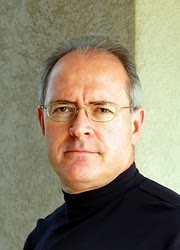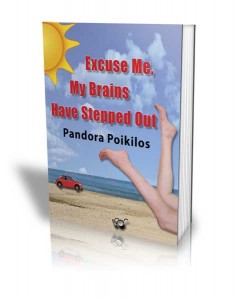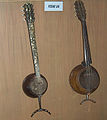 Everett Powers
Everett Powers
The Mighty T
(Suspense/Thriller)
Published: April 13, 2011
Publisher: Me, I own the ISBN.
What is your day job?
I’ve been a chiropractor for twenty-four years, in private practice.
What is your book about (in a few sentences)?
A man obsessed about the Tuolumne River and declining salmon counts plots to return the river to its natural state so the fish can return. He recruits a gang of mercenaries to attack the O’Shaughnessy Dam at Hetch Hetchy, in the Yosemite National Park. They succeed, but the river is still controlled by the Don Pedro Dam, so they go after it next. Detective Grant Starr and his team foil the terrorists’ plans at the last second, avoiding a catastrophe second only to 9/11.
Most challenging part of the writing process:
Plotting: What happens next? I began writing The Mighty T with just a rough sketch of what I wanted to happen; filling in the details was tough. I envy authors who can plot their entire book in advance. On the other hand, I enjoy “discovering” what happens next as I write. Stephen King calls this kind of writing a “found thing” and likens it to finding a relic in the ground; you learn what it is bit-by-bit, as you brush the dirt away.
What motivates you to write?
I love life more when I’m writing because creating is exciting. On the practical side, having 15-20 books that continue to sell for years is a great retirement plan. I’m not so thrilled about the future of Social Security.
Did you experience writer’s block? If so, how did you overcome it?
I did suffer writer’s block, but never for long. Of course, it came from not having a thorough plot.
I overcame it by writing my dilemma on paper, not on the computer, and then focusing on just that one thing until I came up with a good solution. I have a beat up old spiral notebook with pages and pages of problems, questions, discarded ideas, and finally, solutions. I treasure it.
How long did it take you to write this book?
The first draft took four months. Edits took another two. Then I queried publishers and agents, got rejected by all. I set it down for six months, returned to it when I discovered the world of self-publishing. Found many good on-line resources for writing, spent another two months editing, which significantly improved it, then published it. Altogether, eight months. I hope the next one won’t take as long.
Why did you decide to self-publish this book?
Primarily because I couldn’t attract the interest of an agent or publisher. It was either shove it in a storage box or find a way to publish it myself. Now that I know more about the publishing world, I’m happy to be in control. The future of traditional publishing is murky.
What is the biggest misconception about writing a book?
I’m going to assume you mean writing fiction. I’ve written plenty of health-related reports that made a lot of money, but that type of writing is not the same as writing fiction. That’s one misconception I had: I thought if you could write non-fiction, you could easily write fiction.
That misconception led to this one: I thought I could just sit down and write a book, that it would be that easy. Anyone can sit down and write a book, but it will likely stink and no one but your relatives and best friends will make it past chapter one. Writing a book people will want to read so bad they’ll shell out some of their hard-earned dough is hard work.
What was your favorite aspect of the writing process for this book?
When the ideas and words are flowing, it’s a high. You know it’s good and you’re proud of it.
What tools/methods have you employed to promote your book?
I’ve really worked on the description, the blurb shown with the book on Amazon and other sites it’s listed on. It was too long. You have an ebook reader’s attention for mere seconds before they move on. If they make it past your title and cover, you don’t want to bore them with a long solid block of text in the description. They just won’t read it, and they’ll be gone.
The main way I promote The Mighty T is through my blog and Twitter. I use Twitter to promote the blog as well as the book itself.
I blog excerpts from the book, then comment on the excerpts. This way people can sample my writing and a bit of my personality; if they like what they see they’ll click on the link and buy the book. I like to think I earn my readers by writing well, and presenting the writing well.
Twitter has been an experience, my first foray into social media. I dislike the continuous self-promoting you see on Twitter. I understand why they’re doing it, but if that’s all you do, and you’re not very interesting, or famous, people will tune you out by unfollowing you. You really have to work on being interesting.
I have an author Facebook page and a fan page. My wife handles them because I don’t like Facebook (which is an understatement).
This is my second author interview, thank you kindly. I have another planned, but I’ll need to figure out how to make a video and post it on You Tube. As I wrote on my first blog post, I’ve been dragged kicking and screaming into the digital era.
I plan on doing an on-location book trailer, homemade-style. We’ll see how it goes.
What advice would you give to writers regarding promotion?
If you can afford to, pay someone else to your marketing so you can write. Unfortunately, most of us self-pubbers don’t have deep pockets and must promote ourselves. I think it’s best to model authors who’ve successfully marketed their own work. Two come to mind.
Jack Konrath’s advice is good: 1) Write a good book. 2) Give it a professional cover. 3) Write a good blurb. 4) Make sure the formatting is faultless. 5) Keep doing the above until people can no longer ignore you. This is pretty much my plan.
John Locke gave some good advice in an interview. He’s selling extremely well so it seems we should listen to what he said: Know your target market and design and write for them. Ignore everyone else. He’s found his market and does a good job of giving them what they want: a quick, breezy read. For a buck.
My target market are people who read the kind of books John Sandford writes. People like me.
I’m a writer – if I stop writing, I am nothing. Wilbur Smith
Is this true?
It’s not true for me. I’m also a husband and father. I identify with those roles more than my role as a writer. If all the pens and pencils and paper and computers disappeared, I’d still want to go on for my wife and family.
Inspiration is the act of drawing up a chair to the writing desk. – Anon
How do you feel about this statement?
I agree with it. Tell ten people you write fiction and six will say “I’ve always wanted to write…” And then they’ll tell you their ideas for books they’d like to write, someday. Yet they never draw up a chair to the writing desk and put words on paper.




